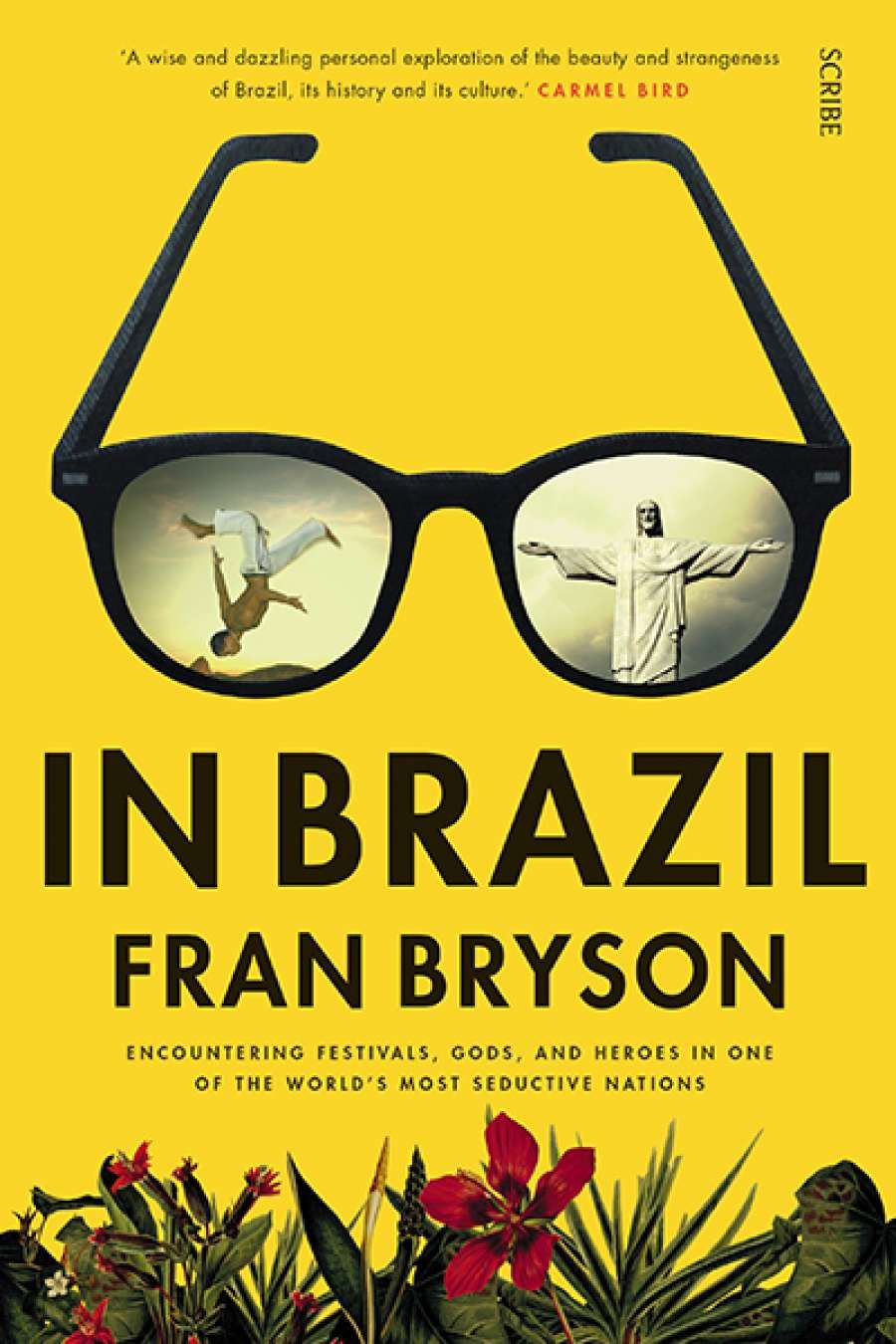
- Free Article: No
- Contents Category: Travel
- Custom Article Title: Kevin Rabalais reviews 'In Brazil: Encountering Festivals, Gods, and Heroes in one of the World's Most Seductive Nations' by Fran Bryson
- Book 1 Title: In Brazil: Encountering Festivals, Gods, and Heroes in one of the World's Most Seductive Nations
- Book 1 Biblio: Scribe $32.99 pb, 320 pp, 9781925321142
 Stefan Zweig in Vienna, circa 1900
Stefan Zweig in Vienna, circa 1900
(photograph by Kunst Salon Pictzner, Wikimedia Commons)Drawn like Zweig to this 'land of the future', Fran Bryson – a former literary agent based in Melbourne – left her home on Flinders Island in order to make 'many trips over some seven years, criss-crossing the country, following curiosity rather than any structured route, often led by a calendar of events'. In the words of the great Portuguese writer Fernando Pessoa, she finds herself always astonished in these travels. They take her across the geographical breadth and cultural vastness of the world's fifth most populous country. Bryson studies the customs, history, language, and locals of various skin shades and class. All the while, she pursues comparisons and contrasts with her own background:
I began to notice the similarities between my country – Australia – and Brazil. Both are big places. Both have the great majority of their populations on the coast. That beckoned questions: what are the differences when one country has nearly ten times the population of the other in roughly the same landmass? ... So I became curious about the interests and concerns of Brazilians and how similar they might be to those of Australians and people in other 'Western' nations.
Early in the book, Bryson finds herself struck by the public nature of religious worship in Brazil. 'In Australia,' she writes, 'you can virtually go through life unaware of religion.' An encounter with a group of 'black women' – Afro-Brazilians of the Order of Our Lady of the Good Death – sparks a comparison of race relations in Australia and the United States. 'In Australia, it is not considered politically correct to talk about someone's skin colour. That doesn't mean there's no racism. In the United States, you are either black or you are white. But in Brazil, talking about skin colour is part of everyday life ...' While the latter detail proves significant to a discussion of Brazil, Bryson's casual remark about race in the United States flies wide of any mark and causes us to question other observations. (Forty-eight million people identified as being Latino or Hispanic in the 2008 US census; this figure does not include the estimated eleven million unauthorised Hispanic immigrants in the country. There are nearly twenty million Asian Americans, as well as the country's own native population and those of mixed raced, who identify as both black and white or as Blaxican – of African and Mexican descent.) Fran Bryson
Fran Bryson
This detail deserves attention because the reader loses trust after such a misunderstanding. In the same manner, Bryson's references often underwhelm. At one point, she writes about hasty online research. At another, she relies on 'a Google search' for details about the reason for the pink colouring used on maps to mark British territories. In both cases, she (the horror!) trusts the internet. In neither does she provide the reader with her source.
These lapses weaken the book, as does Bryson's overly ambitious attempt to cover nearly every region and aspect of the country and its 'folk'. (For one recent example of a successful, refined focus, read Misha Glenny's Nemesis: One Man and the Battle for Rio, 2015.) Still, the country's great impurities allow Bryson to find the same creative energy that Zweig noted eighty years ago. She fills her narrative with characters, culture, and history, often creating vivid scenes in this primer for those curious about the country that will try to reveal itself as the land of the future when it hosts this year's Olympic Games.
Travel writers often reveal as much about themselves as the places they explore and the people they encounter. Bryson proves herself to be an amiable and curious explorer. Her wanderings take her throughout the country so that she can examine the diversities that history has imposed upon Brazilian culture, race, religion, architecture, holidays, and the way its people work and play and worship God as well as diverse gods of other religions and those of the sport that much of the world associates with the national character. A narrative of one Australian's attempt to comprehend her own country and the exoticisms of another, In Brazil should spur readers towards further forays into understanding the country.


Comments powered by CComment